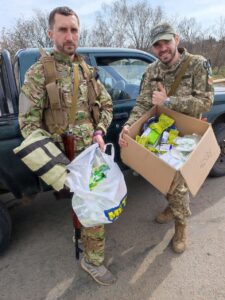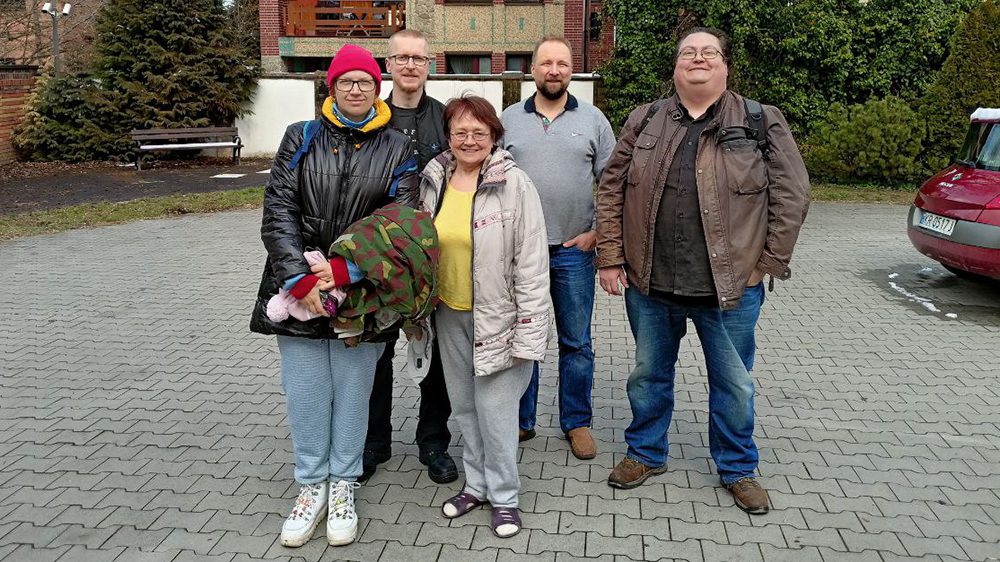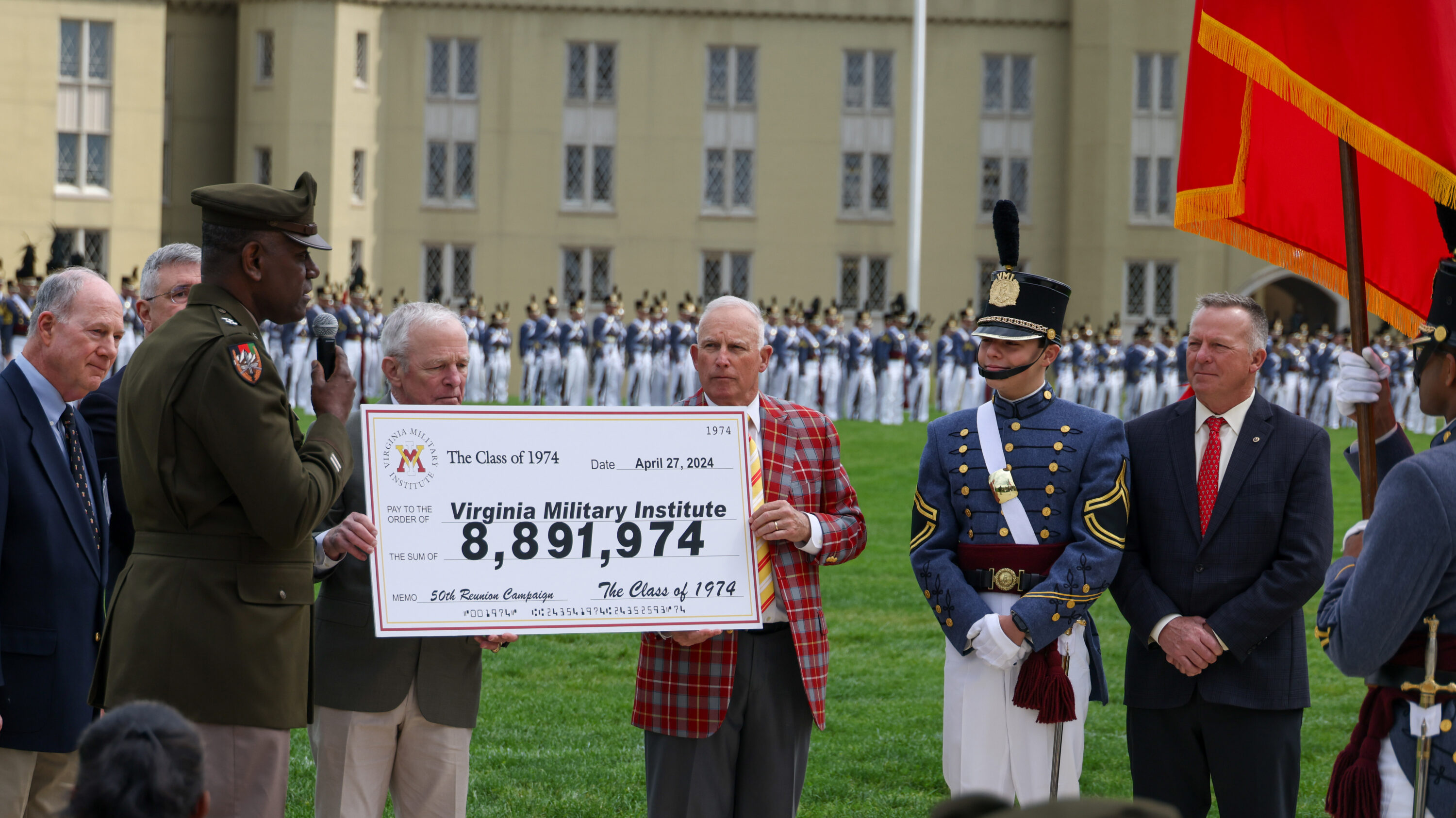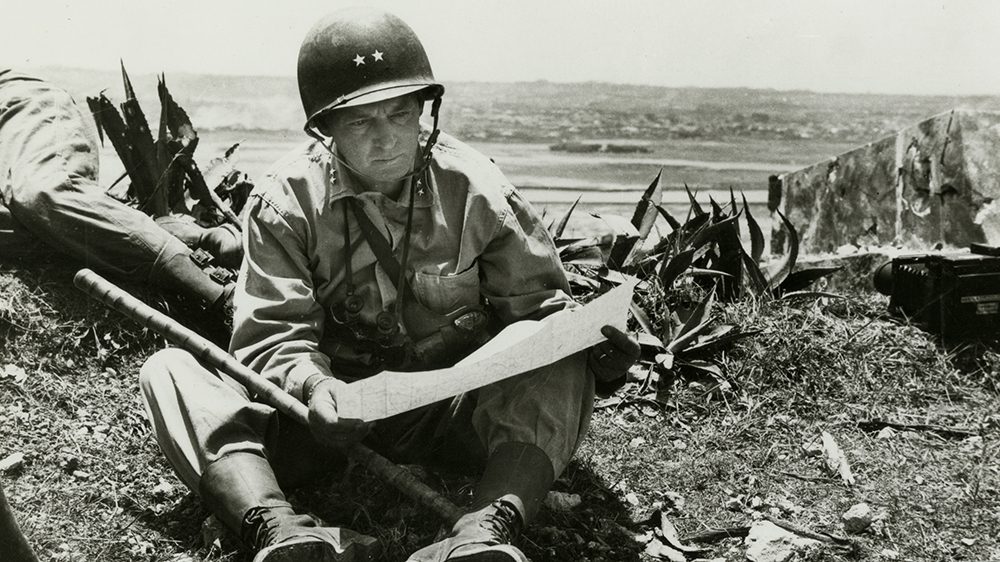In February 2022, the world witnessed Russia’s invasion of Ukraine and the catastrophes that followed in the ongoing conflict.
From his home office in the Netherlands, Harri Jahkola ’01 did not watch for long before he was compelled to action. With the help of a team of friends, Jahkola provides relief aid to Ukrainians. Through their keen strategy, meticulous detail, and hearts for civilians in the war-torn country, Jahkola’s team has provided resources like medical aid and vehicles for medical transport to Ukraine thus far.
Not only does he feel conviction to help Ukraine due to Finland’s similar geopolitical situation, but Jahkola is further motivated by his citizen-soldier mentality which became second nature during his time at the Institute.
Originally from Finland, Jahkola chose to attend VMI after prompting from his childhood friend, Harri Humaloja ’96. Before attending the Institute, Jahkola completed his mandatory 11-month military service in the Finnish military at the age of 20, which also influenced his decision to attend VMI.
“I had an awareness that I needed the discipline and structure of VMI at that time in my life. And I was right,” said Jahkola. “It was a very formative experience for me. I don’t think ‘enjoy’ would be the word I would use, but it was a worthwhile experience. If I had to choose again, I would go again.”
After earning a degree in business from VMI, Jahkola joined KFOR, the NATO peacekeeping force in Kosovo, where he worked in military intelligence. He attended graduate school, but midway through, he decided to take a job offer instead.
He currently resides in Amsterdam, the Netherlands, where he works in corporate finance with a specialization in financial planning and analysis. Jahkola has worked for a number of major companies over the years; for the last four years, he has worked for the multinational Dutch publisher Wolters Kluwer in its legal and regulatory publishing division based in the U.S.
Jahkola credits VMI for connecting him to U.S. companies, as well as preparing him for the corporate world. “It can be tough at times, but VMI definitely prepares you for it,” said Jahkola. “You’re not too concerned about little things. You maintain the attitude that we will live, keep our head down, and keep on working.”
When the war between Russia and Ukraine began, Jahkola put his professional military and corporate skills to use.
His desire to help Ukraine arises from his sense of duty, as well as his country’s long, complex history with Russia. Jahkola grew up cognizant of the threat Russian expansion poses to countries like his own and Ukraine.
“We used to be a part of Russia, and we became independent 105 years ago in 1917, right after World War I. However, during World War II, Russia invaded Finland.”
At that time, the Finnish fought three wars—two against Russia and one against Germany. Yet, the country prevailed and retained its independence.
Jahkola notes that Finland and Russia’s relationship has improved in the last 30–40 years. Nonetheless, he said, “I would still say Finns have always been cautious about Russia’s ascendancy and also their belligerency when it comes to Eastern Europe in the 2000s.”

Medical supplies reach the hands of the Hospitallers Medical Battalion through the combined effort of Jahkola’s team and a Ukrainian family connection.—Photos courtesy Jahkola.
Thus, for Jahkola and his friends, Russia’s invasion of Ukraine was feared, and the news “came as expected” to them. Immediately, they began strategizing ways to help Ukrainians.
“It took us a few weeks to decide the best way to provide aid because we could throw money at the problem and donate to Red Cross, UNICEF, and so forth, which is great,” said Jahkola. “But we wanted to get involved personally.”
Sending aid privately also ensured resources reached the people. “There is, unfortunately, a very high level of corruption in Ukraine, so aid that is sent can sometimes end up in the wrong hands.”
Instead, Jahkola and his team of friends began to channel supplies through Ukrainian families with relatives and connections where help is needed most. In one example, there was a Ukrainian family in Poland in which the men stayed in Ukraine to fight, as well as one of the women, who was a surgeon. These women organize aid, raise funds, and then send needed items across the border.
Jahkola’s team asked the women what they needed, and he says this was the moment they “truly found a way to help.” Instead of clothes and food, the women said people really needed vehicles and medical supplies. Because of the surgeon who stayed in Ukraine to continue serving at the hospital, the women intimately know the country’s need for medical aid.
“They need evacuation aid to bring people from the front lines to the major hospitals in the big cities. This means pickup trucks and ambulances,” Jahkola stated. “So, that’s exactly what we did. We bought a used pickup truck that is one of the more reliable trucks there is. We also raised money from our circle of friends and bought medical supplies like tourniquets and field dressings with those funds.”
Jahkola notes that the medical supplies and vehicles are not problematic because they are part of humanitarian aid. “When a soldier becomes wounded, he or she becomes a civilian according to international law,” Jahkola explained. “Hospitals are struggling with acquiring medical supplies because much of international aid goes to the government and the government will prioritize soldiers, which makes sense. When we provide aid, however, it goes to civilian hospitals, which are serving the wounded civilians mostly, but there’s going to be soldiers, as well.”
Jahkola and his team are meticulous about vetting contacts and ensuring the resources they donate reach the right people. “We receive videos and pictures of the aid—the actual tourniquets and the dressings in the hands of the people and their families.”
When Jahkola’s team sent an ambulance and a pick-up truck, they ensured the vehicles were used and not flashy. One of the men is a mechanic who spent weeks making the vehicles field worthy.
“The risk is that the vehicle will go to Kyiv, where it will belong to some general for private use,” said Jahkola. “We want reliable models that will withstand another 100,000 kilometers or miles but not something that you’re going to be boasting to your neighbor.”
In addition to raising money for the aid they deliver, Jahkola and his team pay for their own overhead so that all of their aid goes directly to Ukraine. He is also passionate about serving overlooked groups such as animal shelters which are struggling to feed the many pets left behind when their owners were forced to flee the country. He said they are short on supplies, especially pet food.
As the war wages on, Jahkola and his friends have no plans of stopping their relief efforts. Jahkola credits his sense of duty to help Ukraine to the citizen-soldier mentality he developed while at VMI.
“In the citizen-soldier mentality, even though I am not active military service anymore, I am still serving my country and my fellow man and woman,” said Jahkola. “It’s something I feel very strongly about and is one of the main reasons why I started helping Ukrainians; I felt I needed to do something.”






